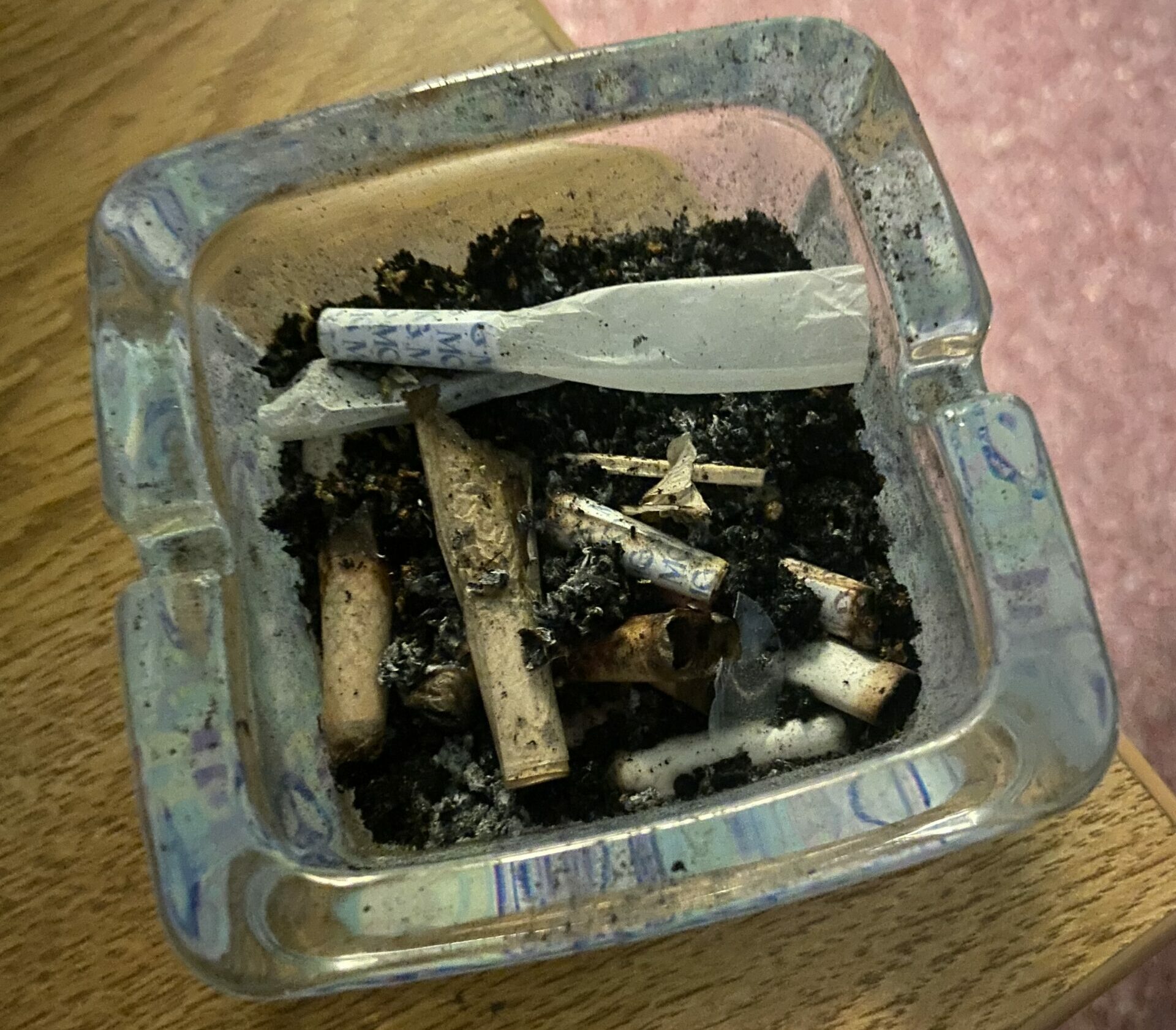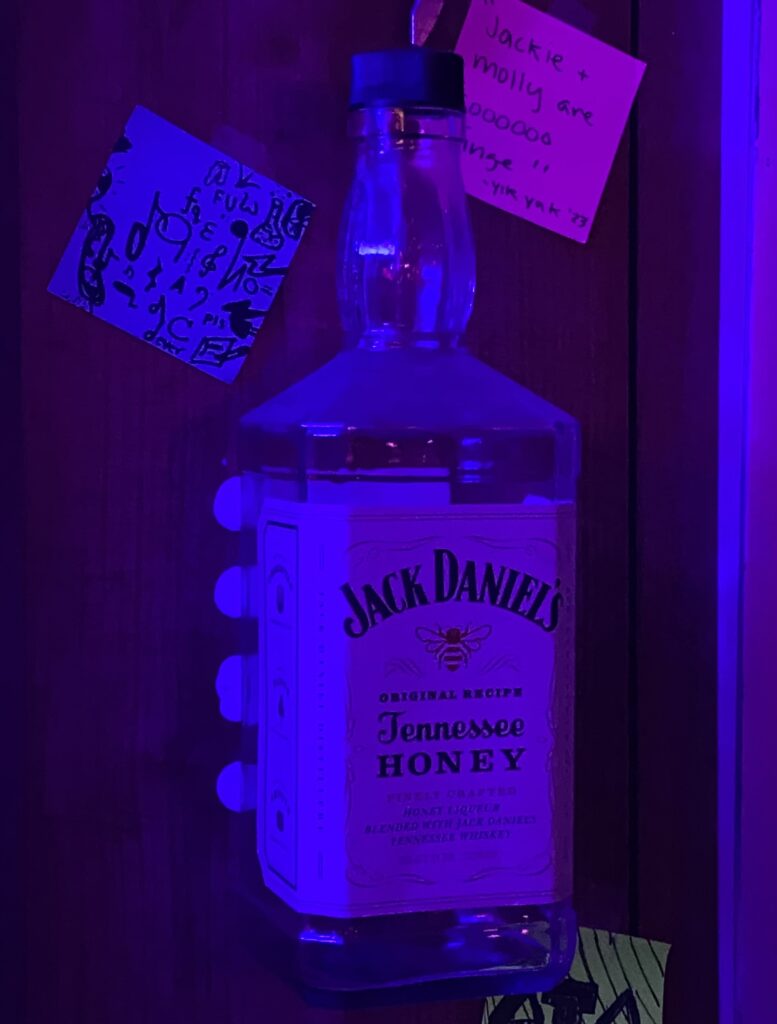As a college student, when you feel stressed out, do you find yourself craving some weed, nicotine, or even alcohol? If so, not to worry; You are not alone. College social life normalizes the use of alcohol, drugs, and controlled substances, and in addition to the stress of living independently, schoolwork and relationships, it can be extremely easy to fall into the habit of using these substances to cope with stress.
“A lot of individuals, unfortunately, use [alcohol and other drugs] for a coping mechanism or as a coping technique,” said Karmen Brown, associate director of prevention at Muhlenberg. “And I think after COVID, that became something that was really particularly impactful for individuals.”
And it wasn’t just Muhlenberg students who were having trouble coping. In a Fall 2020 survey of 3,500 college students, one in five students said they are constantly “anxious” about the pandemic and are spending more time on their academics and less time sleeping and caring for themselves. This implies a greater need for mental health services on campus. Current research also indicates however, that despite this increasing need for mental health care services at institutions of higher education, very few students will seek support or counseling services on campus. Research indicates that a negative stigma associated with counseling or mental health services has decreased students seeking treatment and possibly even discontinuing treatment.
My first experience with recreational drugs and alcohol was a result of COVID; I was bored, I couldn’t see anyone, and there wasn’t much else to do but sit in my room and get high all day. Rather than working through my stress, I would avoid it by smoking myself completely numb.
I became so used to this way of living, as did a lot of my peers during COVID; entering my freshman year of college only further reinforced my behaviors. If everyone else is doing it too, why should I stop? The newfound stress of living on my own in a school environment along with more independence than I had ever had was the perfect storm. I was out partying whenever I had the chance, my grades started to slip, and I struggled to show up to classes (especially after a long night out). I was having fun, but I wasn’t properly taking care of myself or working through my daily stressors; I just liked being able to forget them for a while.
But avoiding my responsibilities quickly caught up to me. I had a difficult time finding the balance between my social life and my academics. This only fed my underlying anxieties and stress, which only seemed to worsen my behaviors.
At the beginning of April this year, an email was sent out to Muhlenberg students that asked them to complete a survey about their feelings in regards to substance and alcohol use on campus, in order to prepare programming for next year’s implementation of Substance Free & Wellness housing. The email sent to Muhlenberg students containing the survey was sent twice, implying that there wasn’t much participation from the campus community.
I wondered if students were having trouble speaking up about their own misuse of substances, or perhaps they failed to recognize they had any problems at all. I definitely wasn’t so worried about my substance use last year, but looking back, I so clearly see all of the poor and unhealthy choices I made. My suspicions of this were confirmed when I attempted to interview Muhlenberg students about their substance use; no one would talk to me. No one would admit that they had a problem, or go into any kind of detail about their experiences with substances. Most of us are under the impression that we can see when other people can have a problem, but when it comes to our own health, it’s a lot more difficult to recognize.


In fact, similar issues were discovered at DeSales University in the Lehigh Valley. In 2020, 360 students ranging in age from 17 to 23 responded to a survey sent out by the college. Students were asked questions to indicate their beliefs and attitudes regarding addiction, mental health, and wellness services. The majority of students (82%) believe that addiction is a problem in our society, however, when asked if addiction is a problem on campus, only 15% agreed. Twenty-eight percent of the students indicate they would like to live in a substance free environment on campus. Interestingly, 43% of students say they have been impacted in some way by addiction.
Since students are afraid to take that first step in getting help, they often go unheard and are left to cope with stress on their own. When not under the supervision of a mental health professional, it’s very easy to adapt unhealthy coping mechanisms, such as substance abuse.
To help students learn better coping skills, substance free housing on campus provides students with the space and support to explore alternative ways to deal with stress. Substance free housing, in Brown’s words, is “all about respecting each other’s choices, their personal autonomy, their personal beliefs, and then respecting how we treat one another within those spaces.” In order to start adopting healthier behaviors, it’s important that we first accept those who choose to stay sober, and create a safe place for them to exist on campus.
The National Association of Student Personnel Administrators and Course Hero conducted a study in fall of 2020 with a sample of 3,500 full-time students currently enrolled in four-year degree programs. In this study, one in five students are constantly “anxious” about the pandemic and are spending more time on their academics and less time sleeping and caring for themselves. This data would seem to imply a greater need for mental health services on campus. Current research also indicates however, that despite this increasing need for mental health care services at institutions of higher education, very few students will seek support or counseling services on campus. Research indicates that a negative stigma associated with counseling or mental health services has decreased students’ seeking treatment and possibly even discontinuing treatment.
“We are hopeful that with some programming coming out of this community as well, that will start to help students recognize that, for some people, [sobriety] is a regular normal way of life,” said Karmen. “They have every right to be respected for making that decision.” Once we as a community can understand and respect others for their sobriety, that it’s okay to not partake, we have a safer space to make choices like that too.























